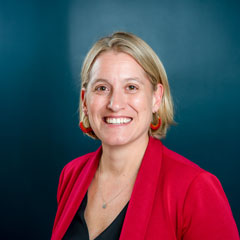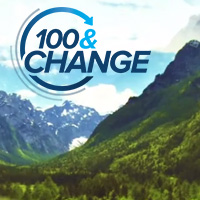Kristen Molyneaux, Vice President, Social Impact at Lever for Change, shares common challenges and learnings from the 100&Change finalists orientations.
In July we hosted the six 100&Change finalists over a series of virtual orientation sessions; a change from our original plan of in-person meetings that would have allowed for more informal hallway conversations and opportunities to connect over breakfast, lunch, and dinner.
Despite the format, these visits provided the opportunity to learn more about the finalists and their work, and they allowed our cross-Foundation team to start digging deeper into the questions, critiques, and challenges all six teams face in operationalizing the impact they seek. These meetings are a starting point for our partnership philosophy and our support for the teams over the coming months as they build impactful plans and grapple with the challenges of scale. One of our goals is to make MacArthur’s Board of Directors decision as difficult as possible.
It is always exciting to meet each team, driven by the desire to learn how each organization approaches its work and harnesses the challenges associated with complex problems. We are under no assumptions that any proposal, plan, or project is perfect and infallible. Instead, we recognize that what you learn from a written proposal only scratches the surface and there is an infinite amount of depth to the challenges and the solutions each team provides. Engaging in these meetings allows us to dig deeper much more quickly.
What We Learned
During our time with each finalist team, we learned that they all had three things in common:
Learning is Key to Impact
Each finalist highlighted the challenges they faced, the changes they have made, and the ways in which they are confronting new challenges head-on. In each discussion, finalists highlighted learning as a critical element to making informed decisions and improvement to their overall model. All teams welcomed tough questions and expressed a desire for continued growth and learning for increased impact.
Teams Have to Be Ready to Pivot and Innovate
Each of the finalist teams in this cohort had to make strategic changes to their work, either by speeding up, slowing down, or completely shifting their ways of operating in response to the global pandemic. Each of them continues to move forward while pivoting their models and approaches to be responsive to partners, beneficiaries, and staff during the COVID-19 pandemic.
Crisis Can Create Opportunity
While COVID-19 has created barriers for many of the finalists, it has also created new opportunities. Each team is finding its unique opportunity while managing challenges, and the authenticity and honesty with which they are approaching their work leaves little doubt that each team will find their stride in the coming months.
Engaging with finalists provides a glimpse into the thoughtfulness and creativity of each team. We are humbled by the openness with which each finalist approached the orientation. Over the coming months, all the teams will continue to engage with us and their communities of interest to tackle the issues ahead.
It is with a humble spirt and great excitement that we embark on this journey. We look forward to learning alongside these teams as they seek to solve some of today’s most pressing challenges.




